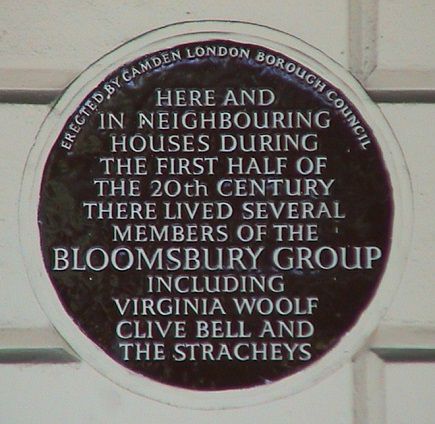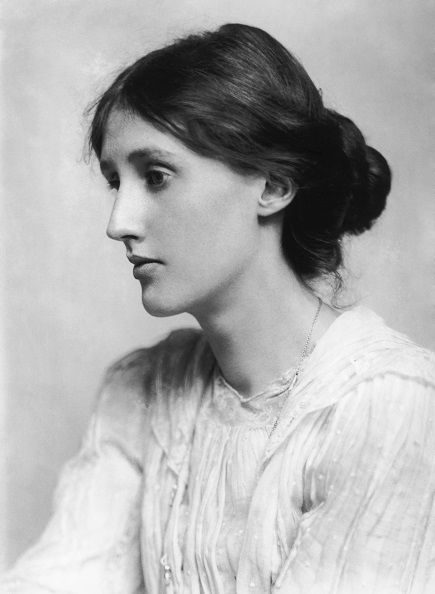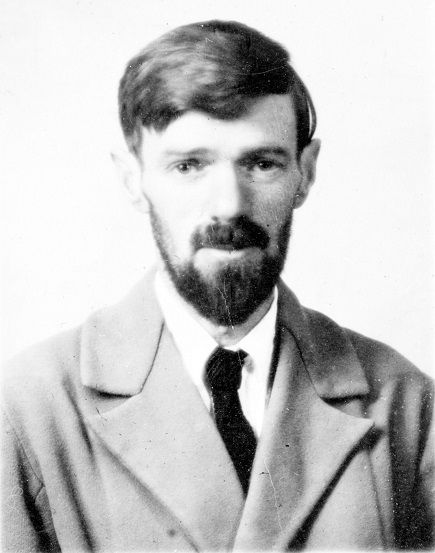LOVE, HATE AND THE BLOOMSBURY GROUP
- 23 December 2017
- Sofia Roberts
We are lucky to have a huge quantity of letters left behind by the Bloomsbury Group, a group of writers and intellectuals living and working near Bloomsbury, London, in the early 20th century, and with whom Katherine Mansfield was associated.
Their letters give us a unique window into the personal lives of the members, and their often fraught relationships with each other. Lets look at two distinct categories: love letters, and hate letters.

Image: An English Heritage plaque relating to the Bloomsbury Group. Courtesy of London Remembers.
Love letters
Love letters were abundant among Katherine Mansfield’s group of friends, which perhaps isn’t surprising given how strongly each of them seemed to feel emotion. Katherine herself, whose relationship with her husband John Middleton Murry could certainly be described as turbulent, still wrote incredibly beautiful letters. Take this extract from a 1920 letter that Katherine wrote to JMM:
"Kissing is a queer thing. I was standing under a tree just now - a tree that is shedding exquisite golden yellow leaves all over my garden path. And suddenly one leaf made the most ethereal advances to me and in another moment we were kissing each other. Through the silvery branches one can see the deep blue sky . . . lapis lazuli. I think the time has come it really has come for us to do a little courting. Have we ever had time to stand under trees and tell our love? Or to sit down by the sea and make fragrant zones for each other? The tea roses are in flower. Do you know the peculiar exquisite scent of a tea rose? Do you know how the bud opens - so unlike other roses and how deep red the thorns are and almost purple the leaves?"
Other members of the Bloomsbury group were also famous for their love letters. Perhaps one of the most well-known ones is from Virginia Woolf to Vita Sackville-West in 1927:
"Look here Vita — throw over your man, and we’ll go to Hampton Court and dine on the river together and walk in the garden in the moonlight and come home late and have a bottle of wine and get tipsy, and I’ll tell you all the things I have in my head, millions, myriads — They won’t stir by day, only by dark on the river. Think of that. Throw over your man, I say, and come."

Image: Portrait of Virginia Woolf by George Charles Beresford, 1902. Courtesy of Wikimedia Commons.
Vita would later reply:
"I am reduced to a thing that wants Virginia. I composed a beautiful letter to you in the sleepless nightmare hours of the night, and it has all gone: I just miss you, in a quite simple desperate human way. You, with all your un-dumb letters, would never write so elementary phrase as that; perhaps you wouldn’t even feel it. And yet I believe you’ll be sensible of a little gap. But you’d clothe it in so exquisite a phrase that it would lose a little of its reality. Whereas with me it is quite stark: I miss you even more than I could have believed; and I was prepared to miss you a good deal. So this letter is just really a squeal of pain. It is incredible how essential to me you have become. I suppose you are accustomed to people saying these things. Damn you, spoilt creature; I shan’t make you love me any the more by giving myself away like this—But oh my dear, I can’t be clever and stand-offish with you: I love you too much for that. Too truly. You have no idea how stand-offish I can be with people I don’t love. I have brought it to a fine art. But you have broken down my defences. And I don’t really resent it … Please forgive me for writing such a miserable letter."
Hate letters
The king among hate letter writers was D.H. Lawrence. The New Yorker hilariously and accurately described how in person, Lawrence could be as churlish and base as any bitter genius, but his particular appetite for insult seems to have been activated around stationery. Lawrence sent hate letters indiscriminately, often to his friends. Some of them were intense literary criticism such as his letter to Bertrand Russell:
"I would rather have the German soldiers with their rapine and cruelty, than you with your words of goodness. It is the falsity I can’t bear. I wouldn’t care if you were six times a murderer, so long as you said to yourself, I am this.'"
The letter ends: "Let us become strangers again. I think it is better."

Image: Passport photo of D.H. Lawrence, writer of superlative hate letters. Courtesy of Wikimedia Commons.
Famously he also sent immensely personal hate letters to Katherine Mansfield after the split in their friendship and living situation. Rock bottom came when he took aim at her health:
"I loathe you, you revolt me stewing in your consumption [...] The Italians were quite right to have nothing to do with you."
Katherine quoted this letter in a letter she wrote to her husband, writing: "Now I do beseech you if you are my man to stop defending him after that [...] In the same letter he said his final opinion of you was that you were a dirty little worm. Well, be proud. Don’t forgive him for that please."
Murry wrote to Lawrence 'stating his fixed intention to hit Lawrence in the face when they next met, regardless of where or when that might be.'
Strong emotions indeed!
Sources
"What history's love letters reveal" by Fiona McDonald, BBC.com
Major Short Stories of D.H. Lawrence: A Handbook, by Martin F. Kearney
